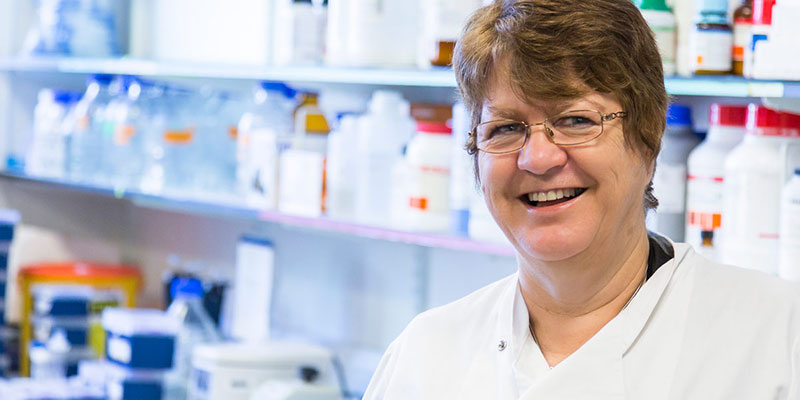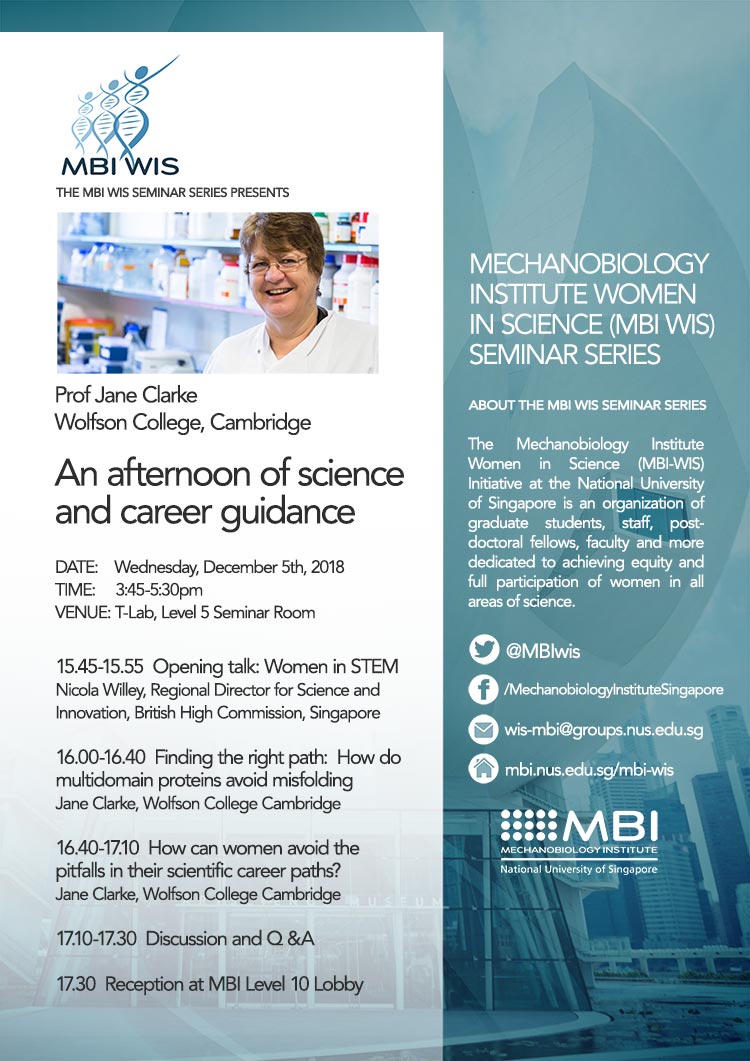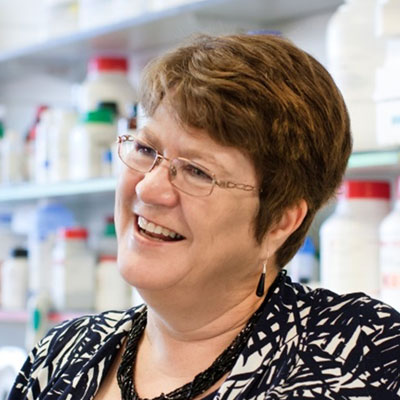MBI Women in Science welcomes Jane Clarke, Professor of Molecular Biophysics and President of Wolfson College Cambridge
Visiting 5 December, 2018
Jane Clarke is a distinguished biophysical chemist recognised internationally for her multidisciplinary studies that have advanced the understanding of protein folding and misfolding. As Professor of Molecular Biophysics in the Chemistry Department of the University of Cambridge her scientific interests are in the broad field of protein folding and interactions. She retired from her Professorship at the end of September 2017, immediately prior to taking up the role of President of Wolfson College. Read more
Prof Clarke will be visiting MBI on December 5th, 2018, to give a seminar on her research and career.
Jane’s career is somewhat unusual. After being rejected by the University of Cambridge, Jane studied her first degree at the University of York and spent her early career teaching biology in Tottenham. Jane explains: “I was not initially accepted into Cambridge as an undergraduate and had to fight for my PhD position. I think it’s quite important that people know that you can fail sometimes.” Read more
“Being a woman means I am a role model, like it or not.”
Jane has managed a diverse, multidisciplinary and multinational research team successfully for the past 20 years. She has a particular interest in widening participation in education in general and science in particular. Reflecting this interest Jane is a member of the Royal Society’s Education and Diversity committees, and of the Wellcome Trust Diversity and Inclusion Advisory Committee. She has worked extensively to encourage young women to stay in science as so many talented women are lost at the stage where they move between post-doctoral and faculty positions. Jane knows by experience that, given a supportive environment, it is possible to have a successful academic career combined happily with being a mother (and grandmother too!). Read more
About Clarke’s Career
“I didn’t fit the pre-defined norm of an academic from the outset,” Clarke says, ” I was a teacher before I did a part-time masters degree and fell for research. It was so exciting – the not knowing, problem solving and following your nose when you’ve got an idea. It’s the best job in the world being a research scientist. But when I first approached the Biochemistry Department at Cambridge about continuing my research, they said ‘You’re forty years old, you’ve got two children, you’re joking, go away.’ Fortunately I had an introduction to Alan Fersht who was the world’s leading protein chemist. He gave me a chance and a first foot on the ladder.
This is seen as a man’s career. Being a woman means I am a role model, like it or not. If you give a bad lecture and they only have two lectures by women a year, then the message is, women are useless lecturers so we don’t need more women. As Deputy Head of the department I try to use my influence to bring about a real cultural change, but it’s hard and it can also be lonely with so few women in the department.” Read more
About Clarke’s Research
The Clarke lab studies biophysical and structural studies of protein folding. The physics and chemistry of weak molecular interactions underpin the whole of biology. These determine the structure and stability of biological macromolecules and the strength and lifetime of interactions of these macromolecules with other cellular components. Understanding how a protein folds into a specific structure (which is only marginally stable) on a biologically relevant timescale, is still a significant challenge. Fundamental biophysical studies of the folding of proteins and of protein-protein interactions are key to understanding cellular function. The lab pursues two fundamental research areas: 1) How do proteins fold at the atomistic level and how is misfolding avoided? and 2) How do changes in sequence, as the result of evolution, or brought about by mutation affect the biophysical properties of proteins? Learn more








